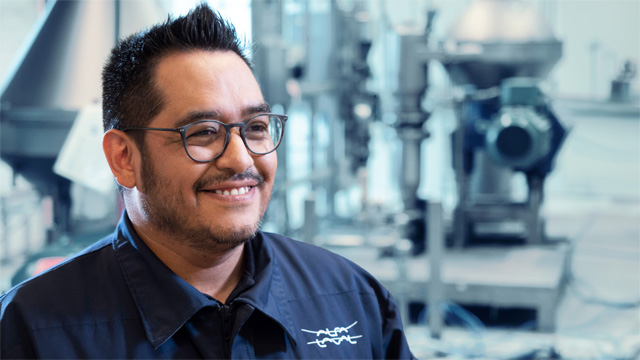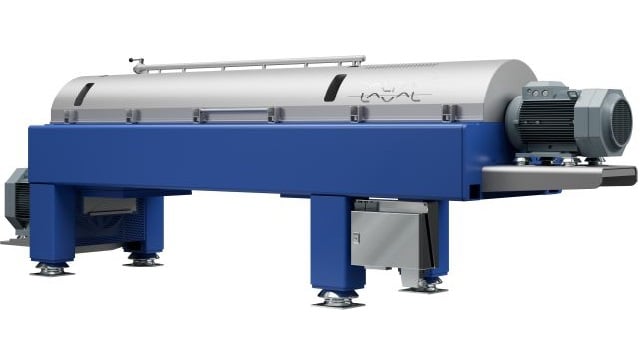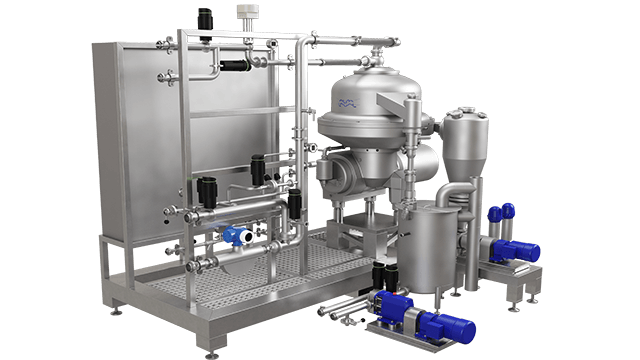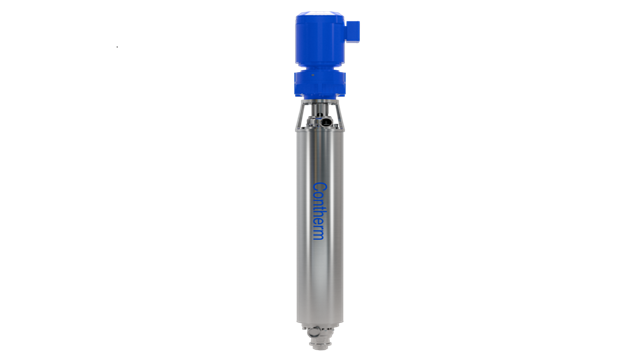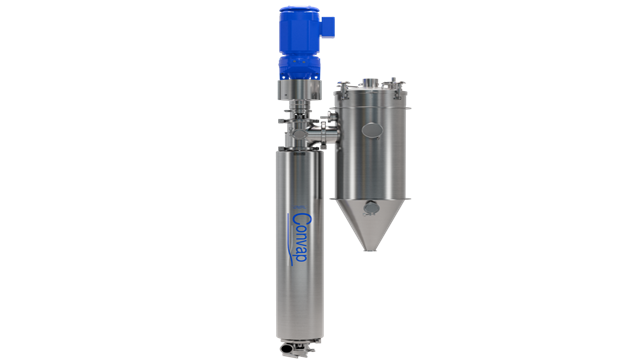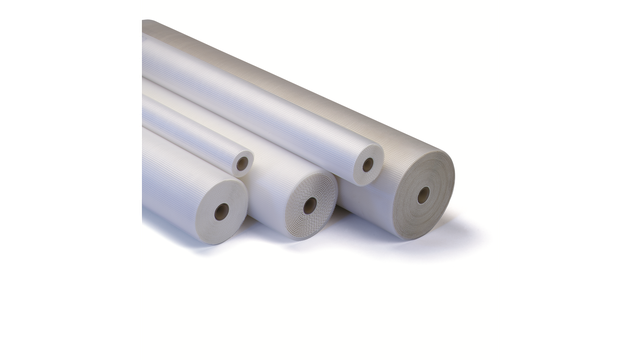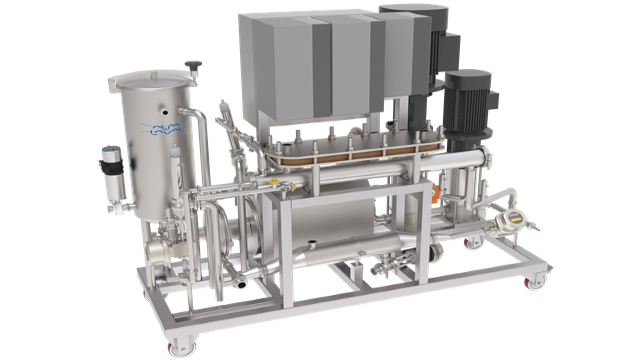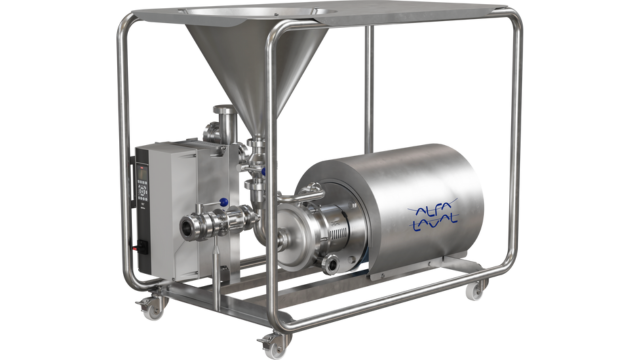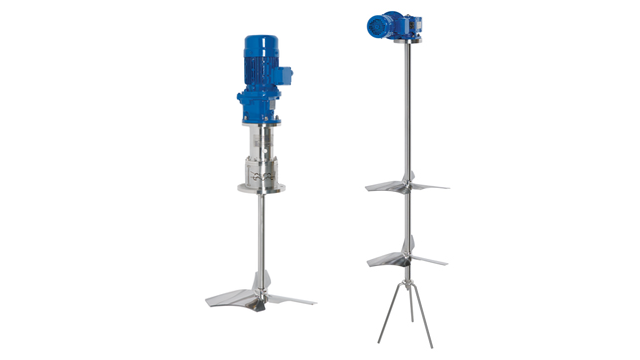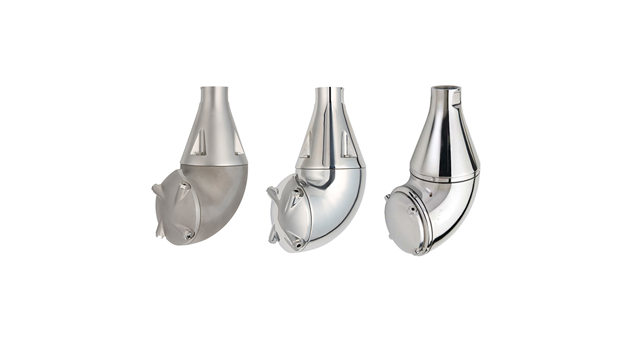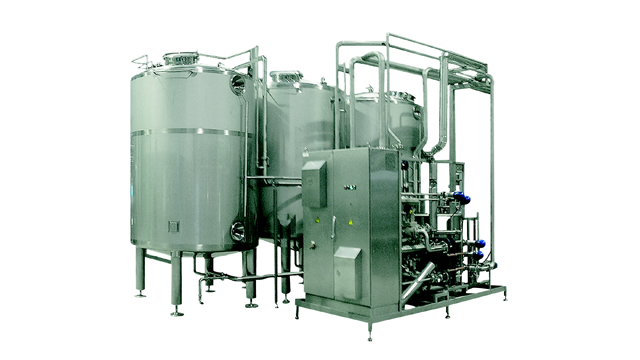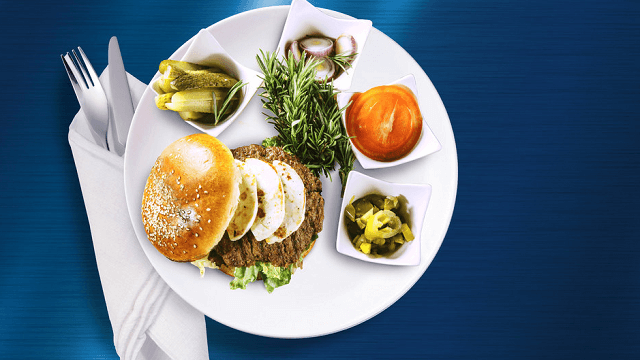Pengolahan Surimi
Solusi dekanter dan pemisah Alfa Laval untuk produksi surimi memungkinkan hasil proses yang lebih tinggi, kebersihan yang lebih baik, dan kualitas produk yang jauh lebih tinggi dibandingkan dengan solusi penyaringan tradisional.
Peralatan kami menawarkan pengoperasian yang andal dalam kondisi terberat dan memerlukan ruang pemasangan minimal, menjadikannya ideal untuk pemasangan di darat dan di kapal.
Baik Anda merencanakan pembaruan maupun membangun pabrik baru, hubungi pakar surimi kami untuk mengetahui bagaimana kami dapat membantu Anda memaksimalkan ROI Anda.
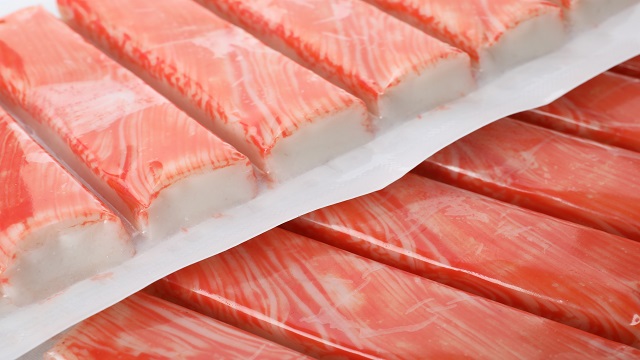
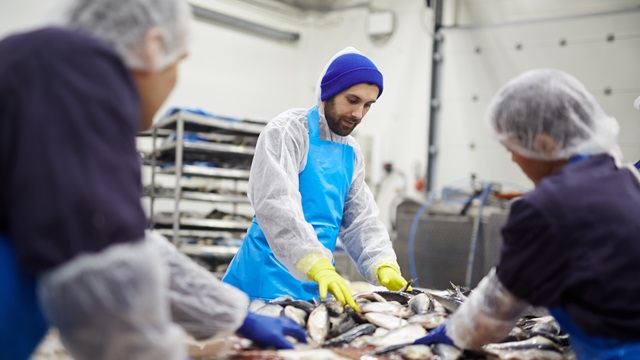
Membuat surimi bernilai tinggi dari sisa potongan
Surimi berperan penting dalam perekonomian operasi perikanan, menawarkan cara mudah untuk meningkatkan nilai spesies ikan bernilai rendah dan mengoptimalkan pemanfaatan bahan mentah dalam produksi fillet ikan.
Lini pemrosesan surimi adalah pelengkap sempurna untuk fasilitas pemotongan filet. Sehingga Anda dapat membuat surimi bernilai tinggi dari potongan dan daging cincang dari rangka, alih-alih menurunkan kualitasnya menjadi pakan ternak.
Hubungi kami untuk mempelajari bagaimana Anda bisa mendapat untung
Langkah-langkah pengolahan surimi
Proses produksi surimi akan membersihkan elemen larut air, terutama protein sarkoplasma dan, dalam beberapa kasus, lipid dari daging ikan. Menghasilkan produk ikan yang bermanfaat dengan masa simpan yang lama, tekstur yang bagus, kapasitas pengikat yang tinggi, dan rasa yang minimal. Daging cincang yang telah dicuci dan dikeringkan dicampur dengan krioprotektan – sorbitol dan gula sebelum produk tersebut dikemas dan dibekukan. Warna surimi bergantung pada spesies ikan dan biasanya berkisar dari keabu-abuan hingga putih. Surimi yang lebih putih memiliki nilai yang lebih tinggi karena paling mudah diberi warna sesuai keinginan selama pemrosesan akhir, dengan memberi lapisan, memberi warna, dan mengukusnya hingga menghasilkan produk akhir, seperti, crab stick.
Deskripsi proses

- Pada proses tahap pertama, potongan daging ikan yang lebih besar dicincang dan dibuang tulangnya secara mekanis untuk memaksimalkan efektivitas langkah pencucian berikutnya.
- Selanjutnya, ikan cincang dicuci bersih dalam satu atau dua tahap dan melewati saringan putar untuk menghilangkan sebanyak mungkin protein sarkoplasma.
- Sistem konvensional berbasis mesin press mencakup tahap pencucian kedua untuk memastikan sebanyak mungkin protein sarkoplasma dihilangkan. Dalam sistem berbasis decanter, tahap pencucian kedua ini dihilangkan.
- Sisa kulit, tulang, dan bagian lain yang tidak diinginkan dibuang.
- Pada tahap selanjutnya, daging cincang dikeringkan, sehingga menghasilkan produk akhir.
- Air cucian dapat diproses lebih lanjut dalam pemisah untuk menyingkirkan kotoran terkecil dan memaksimalkan hasil.
- Tahap terakhir, surimi yang telah dikeringkan dicampur dengan krioprotektan (gula dan sorbitol) sebelum dibekukan dan dikemas.
Meningkatkan tahap pengeringan pada proses surimi konvensional dengan mengganti mesin pres ulir dengan decanter Alfa Laval memberikan beberapa manfaat. Pertama, decanter memisahkan daging dari air cucian dengan lebih efisien, sehingga menghasilkan perolehan daging yang jauh lebih tinggi. Kedua, dibandingkan dengan sistem mesin pres ulir tradisional yang memerlukan setidaknya dua langkah pencucian, ini hanya memerlukan satu pencucian sehingga menghemat air dan biaya. Selain itu, decanter dapat dibersihkan menggunakan CIP, alih-alih dengan pembongkaran manual untuk pembersihan pada mesin pres ulir. Hasilnya adalah kebersihan yang lebih baik, penghentian pembersihan yang lebih singkat, dan biaya pengoperasian yang lebih rendah.
Decanter vs. mesin pres ulir
Baik Anda meningkatkan produksi surimi yang sudah ada atau membangun pabrik baru, memilih decanter menawarkan beberapa keunggulan dibandingkan mesin press ulir:
- Kualitas surimi lebih tinggi berkat penghilangan kotoran yang lebih efisien
- Hasil hingga 50% lebih tinggi karena perolehan partikel halus yang lebih baik dan tahapan pencucian yang lebih sedikit
- Sistem yang jauh lebih kompak
- Penggunaan air berkurang secara signifikan, berkontribusi pada proses yang lebih berkelanjutan, dan biaya operasi lebih rendah
- Pengoperasian lebih mudah
- Proses lebih higienis dengan waktu retensi lebih singkat
- Lebih mudah dibersihkan
Selain itu, peralihan ke decanter memberikan peluang bagus untuk meningkatkan kapasitas di pabrik yang sudah ada.
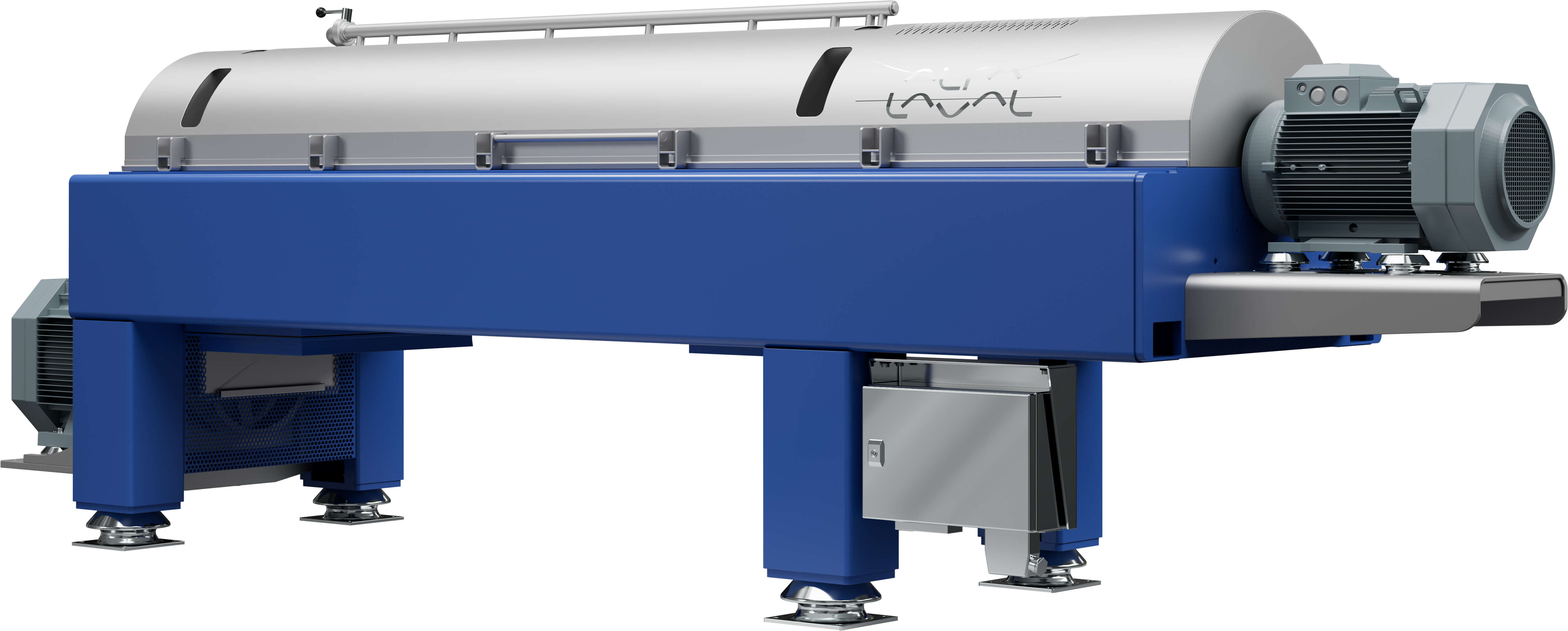
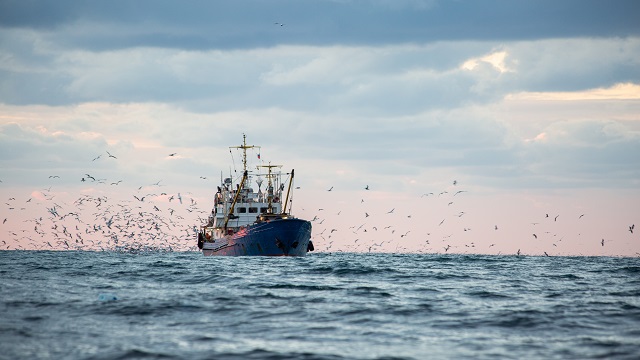
Peralatan yang sangat kompak, ideal untuk instalasi kapal
Berkat bentuk decanter dan pemisah Alfa Laval yang ringkas, alat tersebut hanya memerlukan ruang yang jauh lebih kecil dibandingkan mesin pres ulir tradisional. Keunggulan ini, ditambah desain dan keandalan operasionaal yang tidak tertandingi, menjadikan decanter Alfa Laval sebagai pilihan ideal untuk dipasang di kapal.
Pelayanan cepat dan berkualitas
Dengan Alfa Laval sebagai mitra layanan tepercaya, Anda dapat mengandalkan bantuan yang cepat dan berkualitas kapan pun dan di mana pun Anda membutuhkannya, bahkan di lokasi paling terpencil sekalipun. Jaringan kantor layanan global kami memberikan dukungan profesional di seluruh fase operasi Anda, termasuk pemecahan masalah, pemeliharaan rutin, audit kinerja tingkat lanjut, dan pemeliharaan prediktif.
Memanfaatkan layanan jarak jauh kami, kami memberikan bantuan instan melalui saluran digital. Teknisi lapangan kami dapat dengan cepat dikirim ke lokasi atau pelabuhan mana pun di seluruh dunia jika Anda memerlukan dukungan di lokasi.
Jaringan lokal kami yang kuat menjadikan kami penyedia layanan ideal bagi perusahaan dengan operasi global, membina kerja sama yang lebih erat dan mengurangi beban administratif. Percayakan Alfa Laval untuk solusi layanan komprehensif, yang menjamin pengoperasian tanpa gangguan di mana pun lokasinya.
